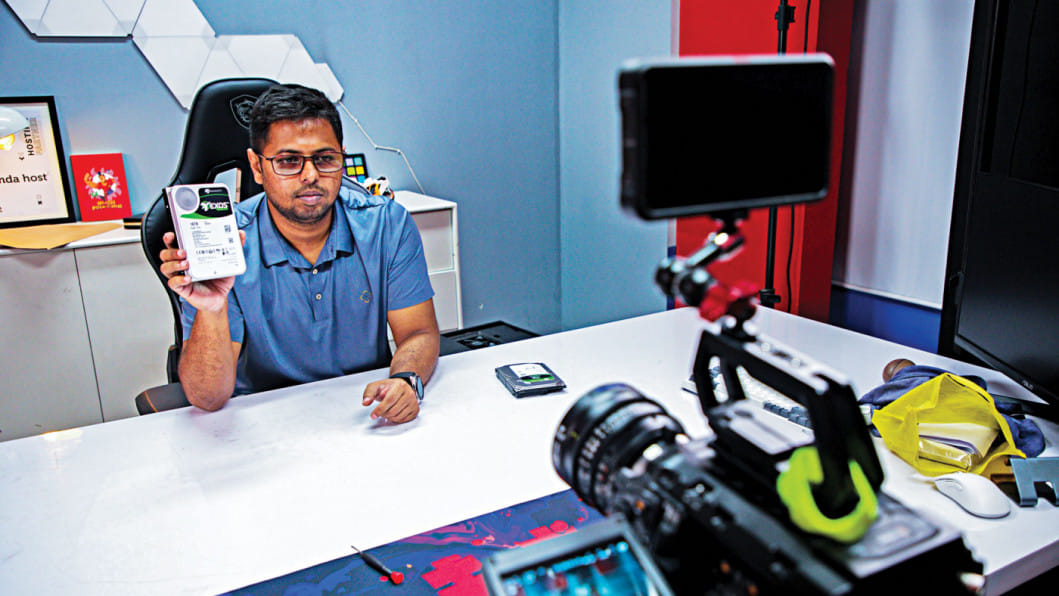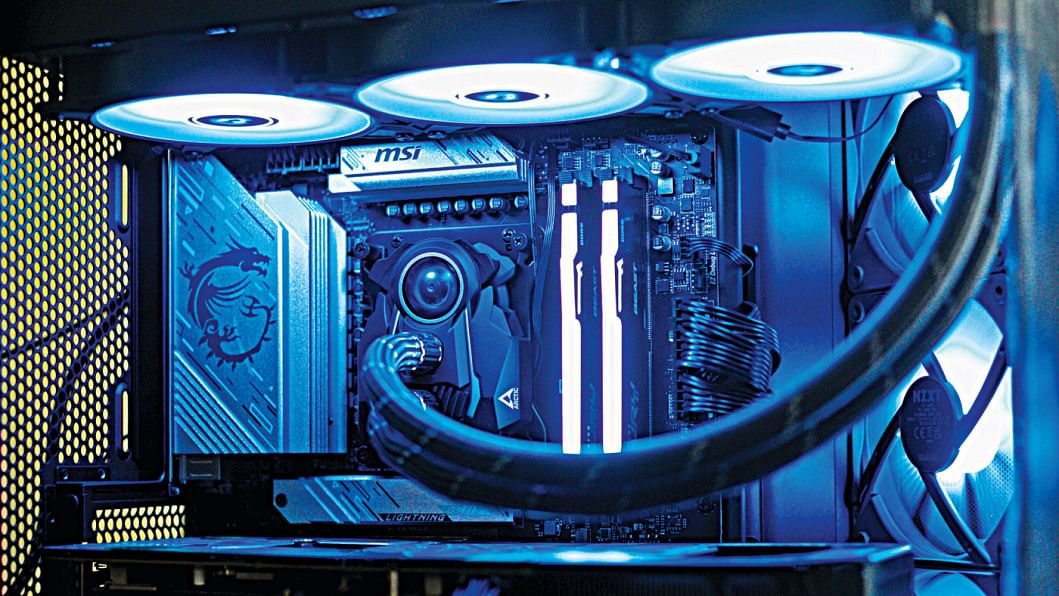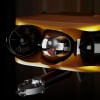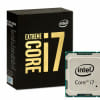For the love of computers
Buying a computer, for most people, is a fairly mundane activity. It involves going to a vendor with a budget, a list of requirements, and the hope that the salespeople are trustworthy and knowledgeable enough about the products to find the best possible deal. But there is a different breed of individuals called computer enthusiasts who have managed to flip this script.
Everyone -- from a child at home to a senior in an office -- uses a personal computer (PC) on a daily basis. But what sets a PC enthusiast apart is that they are invested in the nitty-gritty of how a machine functions, how to get the best performance out of it, how each and every component should be maintained and of course, how to make a PC look beautiful. Many of them even assemble these components by hand, allowing them to become part of the process of building the perfect PC.
Over the years, these enthusiasts have banded together into different communities, from the message boards and forums in the early days of the internet, to Facebook groups and Discord channels today.
These vibrant communities, through shared knowledge and love for the craft, have turned PC building into a hobby of massive proportions.
But PCs can get really expensive, especially for enthusiasts who are obsessed with getting the most performance out of their machines. In most cases, a person who's interested in PC building has to go through somewhat of a journey.

It starts when they are young, trying to play video games on an old PC at home, or watching someone else do it. A thought takes root.
When these young individuals start to play video games themselves and engage in the communities, they learn more about what makes a game run well on a PC.
As they get older, they start to use computers for other things, like school work, programming, photo or video editing, and graphical illustration, strengthening their understanding of the inner workings of computers.
Eventually, this knowledge and the desire to own the perfect PC leads to the dream of building a computer that ticks all the boxes in terms of performance, budget, as well as aesthetics.
The realisation of this dream involves meticulous planning. For some, it can involve saving up for years. Looking at hundreds of options for each of the 14-15 components that make up a computer, doing as much research as possible to make sure no important detail is missed–all of this can end up taking months. However, when it all culminates in a casing full of quality components adorned in red, green, and blue lights, it's a feeling like no other.
Adeeba Afreen Chowdhury, a final year BBA student at Brac University, gives a glimpse into how things pan out for the average PC enthusiast.
"Building my PC was a big project I'd been thinking about for a while," she says. "It started when I saw the trailer for Valorant (a first-person tactical shooter game) during the pandemic. I had a basic HP laptop for school but wanted something better for gaming. I saved up, starting with 30 thousand from my mom. I could just purchase the motherboard, processor and a RAM stick with it. I had to borrow the monitor, keyboard, and mouse until I could save up more," she adds.
Shakib Shafin, who works at a private bank, tells his story of joining the bandwagon of PC enthusiasts.
"As a young gamer, I would see people with really powerful PCs with which they could play any game, and watching them made me want one such PC for myself too. When I was a student, I couldn't afford one myself, so I took help from my parents and got a mid-range PC. It served me well for some time but then I started noticing performance issues. So I started saving up and last year, with the help of my friends, I finally built my dream setup," he says.
In this entire process, the community remains a constant presence in the life of a computer enthusiast, helping them with answers when they're stuck and guiding them with the inspiration of what others have done in the past.
Tamjidul Hoque, an LLB graduate from Chattogram, built his PC after the graphics card price hike of the early 2020s finally slowed down in 2023. For him, the community was a vital resource.
"The PC building community helped me throughout," he remarks. "When I decided to build a PC, I started asking all sorts of questions to these communities. They helped me in two ways – to decide which component I needed and which component was more value for money. I would say the community helped me not to waste money," he says.
Several YouTube channels on the PC building are also helping these enthusiasts. Though a lot of PC enthusiasts may not have the ability to get their hands on the expensive and latest PC parts, these channels act as a window to the ever-changing tech world.

The most notable channel in this category would be Linus Tech Tips, founded in 2008, by a Canadian YouTuber Linus Sebastian. The channel with over 15 million subscribers has now become an incorporated media company that employs over a hundred people.
In Bangladesh, the YouTube channels serving this segment are growing rapidly, and these channels are what the PC community revolves around. PC Builder Bangladesh is the biggest name here, with almost 500,000 subscribers on YouTube. They also maintain vibrant communities on other online platforms, and their Facebook group, PC Builders of Bangladesh, has over 200 thousand members.
The Daily Star visited their studio, and in the justifiable mess created by thousands of PC components being continually tested and shot on camera, we spoke to Ananya Zaman, the editor of PC Builders Bangladesh.
Zaman, also a web developer, shared his journey in the world of PC Building, starting as an enthusiast, eventually building his own dream PC, and then, entering the world of content creation.
"Our YouTube channel was opened in 2014 by Zahid Haque. In 2015, I was making good money as a web developer and thought it was the right time to build my dream PC. I wasn't confident about the traditional vendors' ability to deliver according to my needs, so I contacted Zahid bhai, who helped me. And then he asked me if I could help him with the videos on this channel.
"Eventually, we expanded our channel. Now, we have 22 full-time team members and more part-timers working to make content. We post videos almost daily. In the last 10 years, we have collaborated with some of the biggest global brands. Our tech community has grown too, and almost 80 percent of the community is part of our groups," he said.
Ananya Zaman explained the important role content creators like PC Builder Bangladesh play in the PC community.
"The lack of a thriving community in the past made customers vulnerable to exploitation. Now, our content helps not only individuals but also businesspeople who make up a significant chunk of our audience. They gain technical knowledge from us. We also make the job easy for vendors, because if the customers are aware of what they are buying, then vendors don't have to spend too much time explaining," he said.
While computer components manufacturing is still not prevalent in Bangladesh, Zaman mentions how local assembly by Bangladeshi brands is starting to make components with high-end features more accessible here. And these brands regularly engage with content creators for information about consumer demands to improve their products.
MD Jahed Ali Bhuiyan, Managing Director of StarTech, gives his take on how the industry views this growing community of PC enthusiasts and what they do to leverage people's love of PC building.
"This community tends to be the early adopters of newer-gen technology and is passionate about the various components. They influence buying decisions for themselves and others through online forums, reviews, and word-of-mouth. The PC-building community is a niche but dedicated group. By catering to their needs, we can tap into a loyal customer base willing to spend on high-end components," he said.
He also mentions the online groups and forums his company maintains, as well as their support of PC building competitions, workshops, and meetups which are aimed at creating direct engagement with customers.
In the story of PC communities, the main characters are the people who make it up. This is a hobby that is beneficial to people, to industry as well as society, which needs advanced levels of computer literacy in today's world. But its greatest benefit may just be the happiness it brings to millions. It also helps bring communities together.
Shakib Shafin sums it up, "This hobby lets me log out of real life when it gets too much. When I look at this PC that I worked so hard to build, when I get to talk to people about it, when my friends compliment me on it, it's one of the best feelings ever."

 For all latest news, follow The Daily Star's Google News channel.
For all latest news, follow The Daily Star's Google News channel. 







Comments